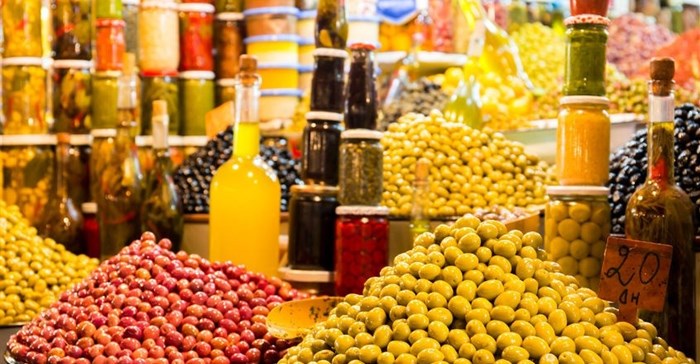#CGFSummit: Future of retailing in sub-Saharan Africa

This means attention is focussed on the region from retailers and suppliers looking to grow grocery sales, according to IGD Retail Analysis, Insight presentation, June 2016, entitled: ‘The future of grocery retailing in sub-Saharan Africa’.
The report was widely discussed at the summit.
The stats
These are the upfront numbers that the IDG wants you to know:
US $740 billion will be the estimated value of the region’s total grocery retail market by 2021.
6.6% share of global grocery retail sales will be accounted for by countries in sub-Saharan Africa in 2021.
10% CAGR for sales in grocery retail market of countries in sub-Saharan Africa between 2016 and 2021.
US $640 – the average grocery retail spend per capita in the region in 2021, underlining long term opportunities.
Five things to know
These are the five things that IGD says marketers and brands have to know when doing business in sub-Saharan Africa:
- There are “massive opportunities” in the market, but there are no easy routes to success. A long term strategy is needed – one that takes into account local knowledge and partnerships.
- Traditional channels still dominate most markets in sub-Saharan Africa, so innovative thinking is required for suppliers to build brand awareness and engage with shoppers in the fragmented marketplace.
- Urbanisation is a force for change in sub-Saharan Africa, as it is in other countries throughout the world, and will promote growth, but meeting that demand in “highly concentrated urban areas” in the future, will be challenging for most companies.
- The traditional retail model is redundant, as IGD states in the report: “Previous, well-known and understood patterns of development, for stores, digitally and supply chains, are unlikely to be followed, so do not expect to impose existing global answers in the region.
- Local solutions to local problems is what is needed for brands to grow in Africa: “Employing a local team that can build specific country or city answers to challenges, will help companies to succeed and drive long term growth,” says IGD.
The report elaborates on the considerations to doing business in sub-Saharan Africa, reiterating that a long term strategy is needed as “it’s likely to be a bumpy ride… plan long term”.
And these are the five key considerations when investing in sub-Saharan Africa, quoted verbatim:
- Growth is unlikely to be in a straight line. Fluctuating commodity prices will affect economies, requiring long term planning and companies to be relaxed that growth cannot be strong every year.
- Lack of legacy issues provides opportunities. A lack of large scale store estates means that the fast paced change could occur; especially as global inspiration is given a local twist.
- Shoppers’ use of mobile phones and mobile payment schemes – in some countries, this will create the possibility for retailers and suppliers to engage digitally.
- Give the pace of change, staff retention will be key. Continuous development, new and evolving formats and digitisation will require new ways of training and keeping hold of staff.
- Supply chains need to keep up with fast changing demands. For retailers and suppliers trying to work their way through these changes, optimising their supply chins has become increasingly vital to supporting sustainable growth.
Strong opportunities exist, and there are key takeaways from the IGD report…
Yes, Africa’s middle class is growing and there are opportunities to add premium products, however, the need is for basic goods and services in the mass market.
Source local, IGD emphasises, as this will have a positive knock-on effect in growth on the continent, plus governments in the region are staring to crack down on importing ingredients and completed products.
Talent acquisition
“Employment is a key issue… sourcing locally extends to the need to employ local staff where possible. Although a global team can help start or support the establishment of a local business, transitioning to a local team with associated knowledge, will be key to benefit from countries’ medium term growth.
“Local knowledge is becoming progressively more important as the pace of change – urbanisation, channel development, category management, etc. – increases, while retaining knowledge that helps underpin and develop local, county or city-specific solutions, will be important for companies’ long term, sustainable growth prospects, ” the report states.
What is important to note, according to IGD, is that there is no linear model to success for grocery retailing in sub-Saharan Africa, no prescribed retail model for these developing markets, which will be disrupted by macro-trends like mass urbanisation and unrestrained digitisation of markets…
Cutting out the advertising clutter for brands to stand out will become more difficult and IGD advises that new launch strategies need to be mobile-first and that e-commerce is a long term solution, but also in the interim, it is an opportunity to engage, target and market to shoppers. Mobile money is a success story in developing markets in Africa, particularly where banking systems are under developed and customers need digital payment solutions.
What does this mean for suppliers?
- Flexibility will be required constantly.
- Mobile-first approach will help them to win….
- Thinking about the supply chain will be key.
- Training and incentivising staff will help the retention of talent.
- Fewer silos will help create better solutions.
Finally, IGD want to emphasise that the grocery industry can be “a force for good”.
“A key driver of sustained economic development is the creation of further jobs, especially high productivity jobs that create a regional or globally competitive employment base. With its myriad of roles and potential to employ a large number of people, the grocery industry across both retailers and suppliers has the opportunity to act as a force for good.”








